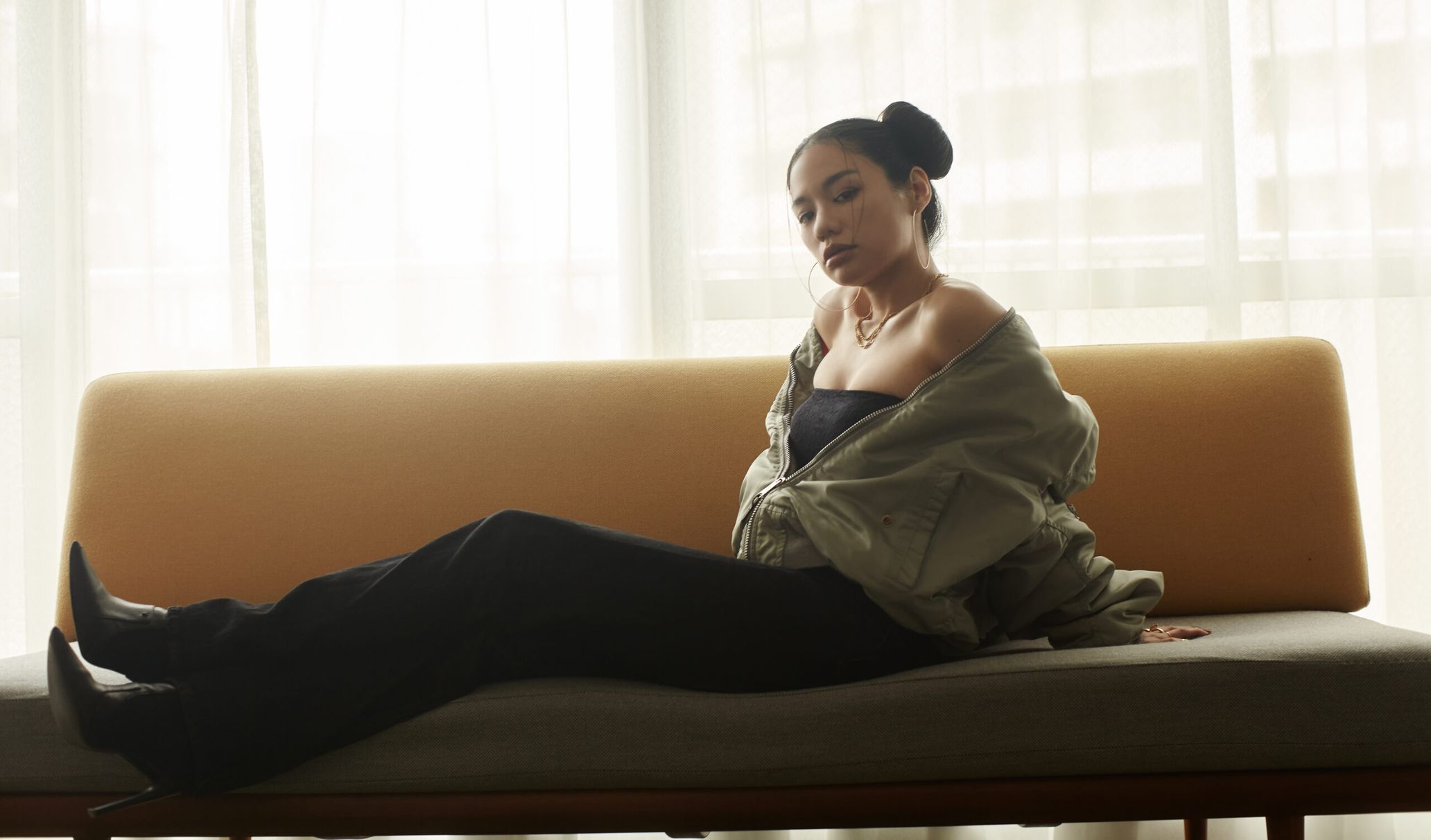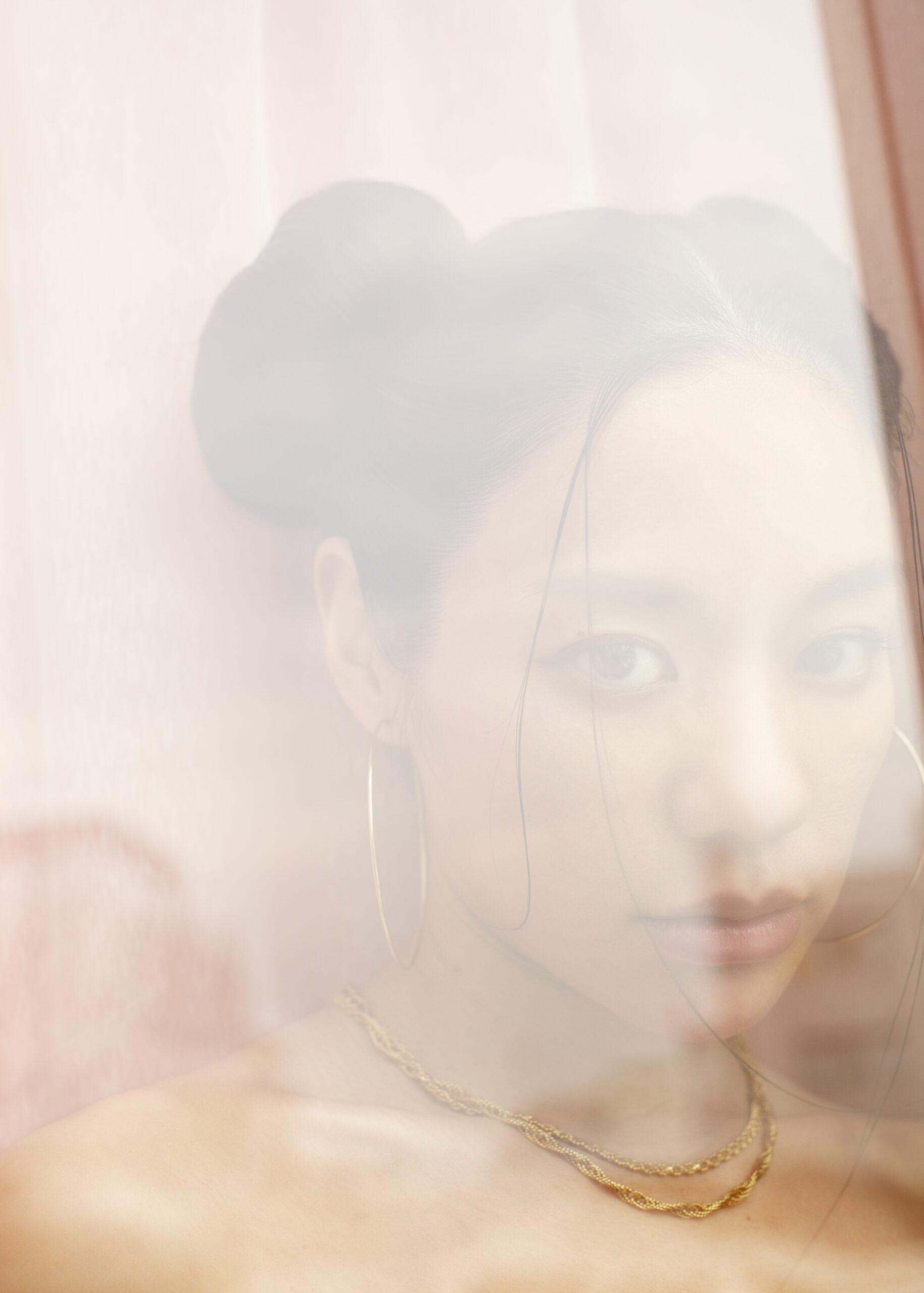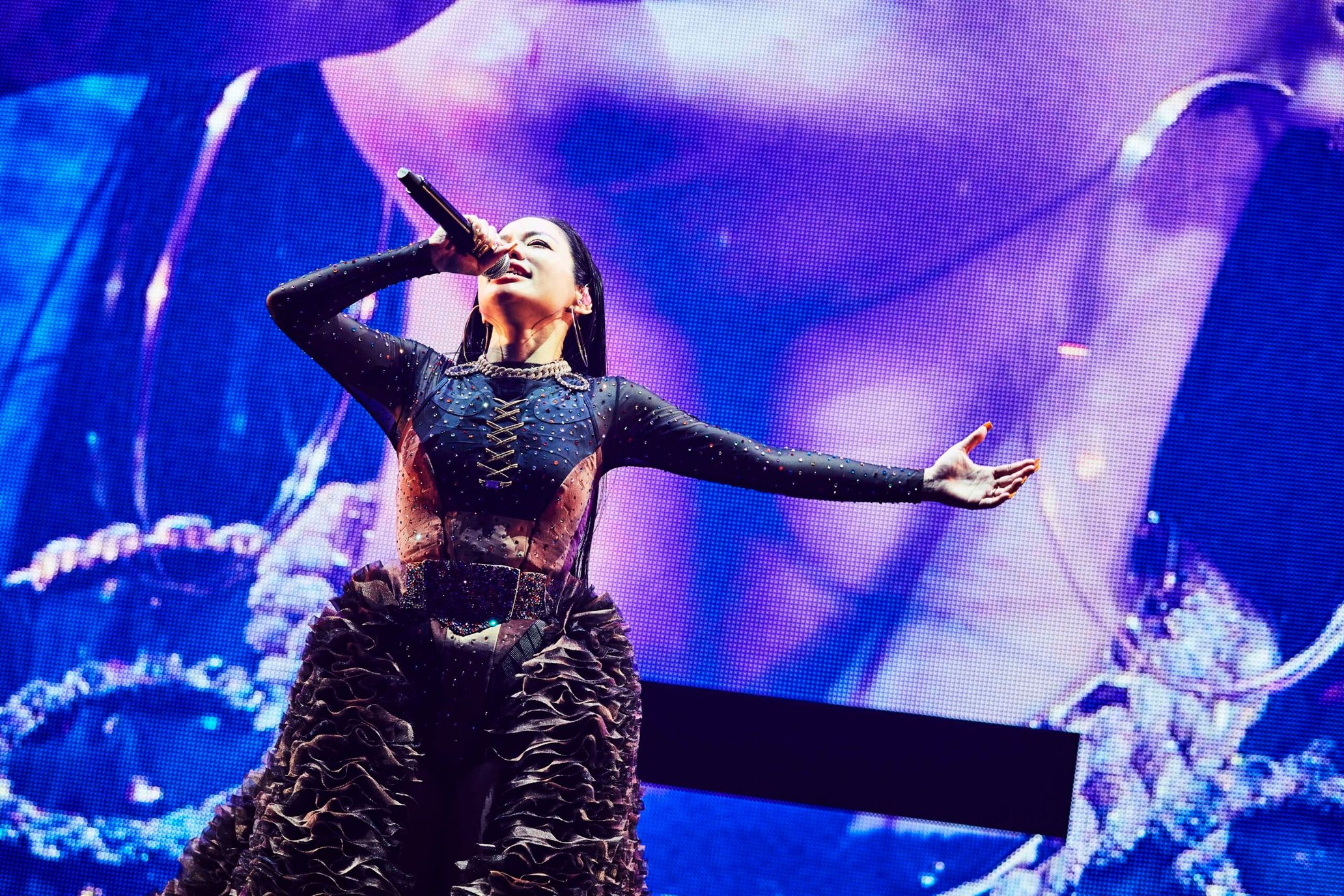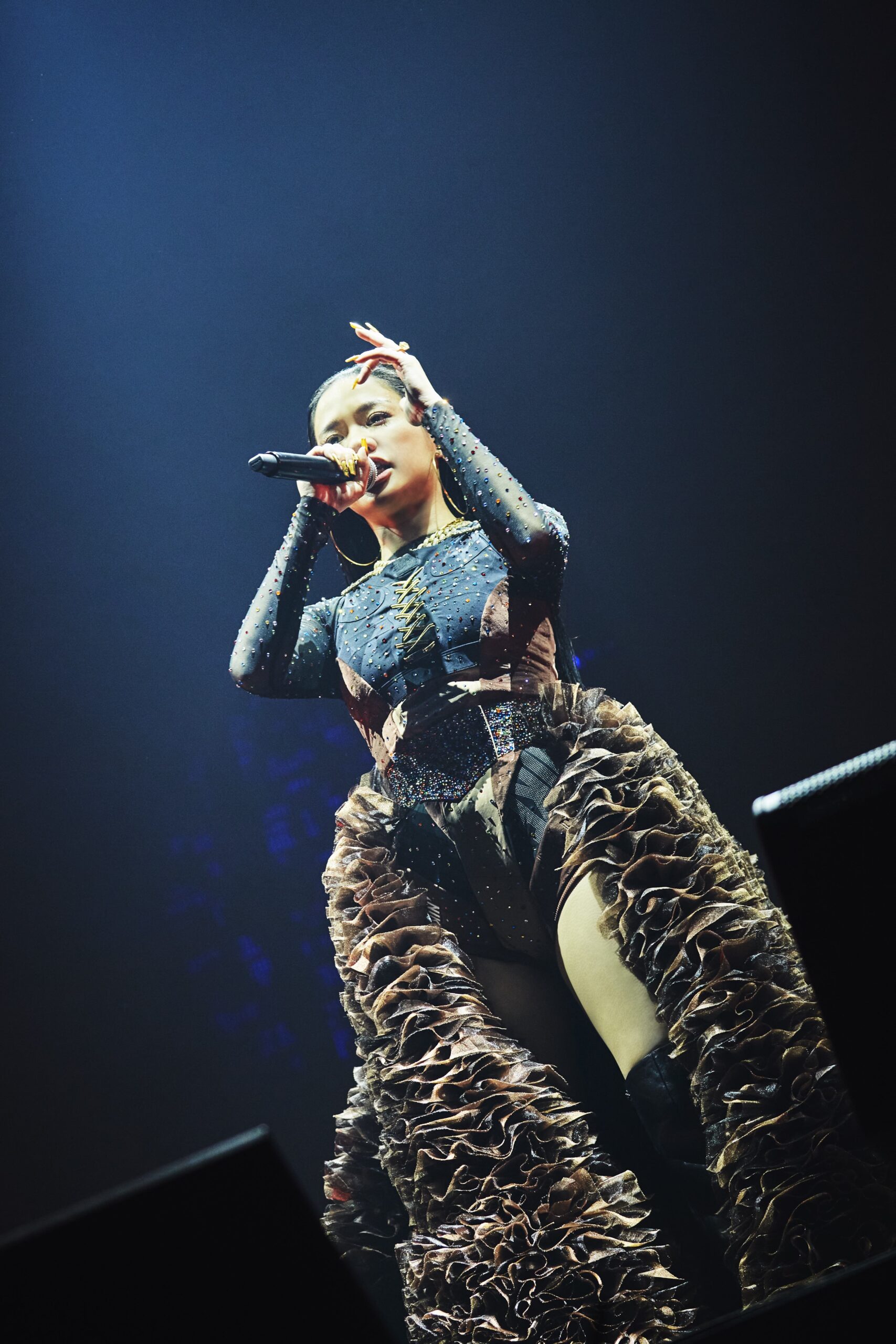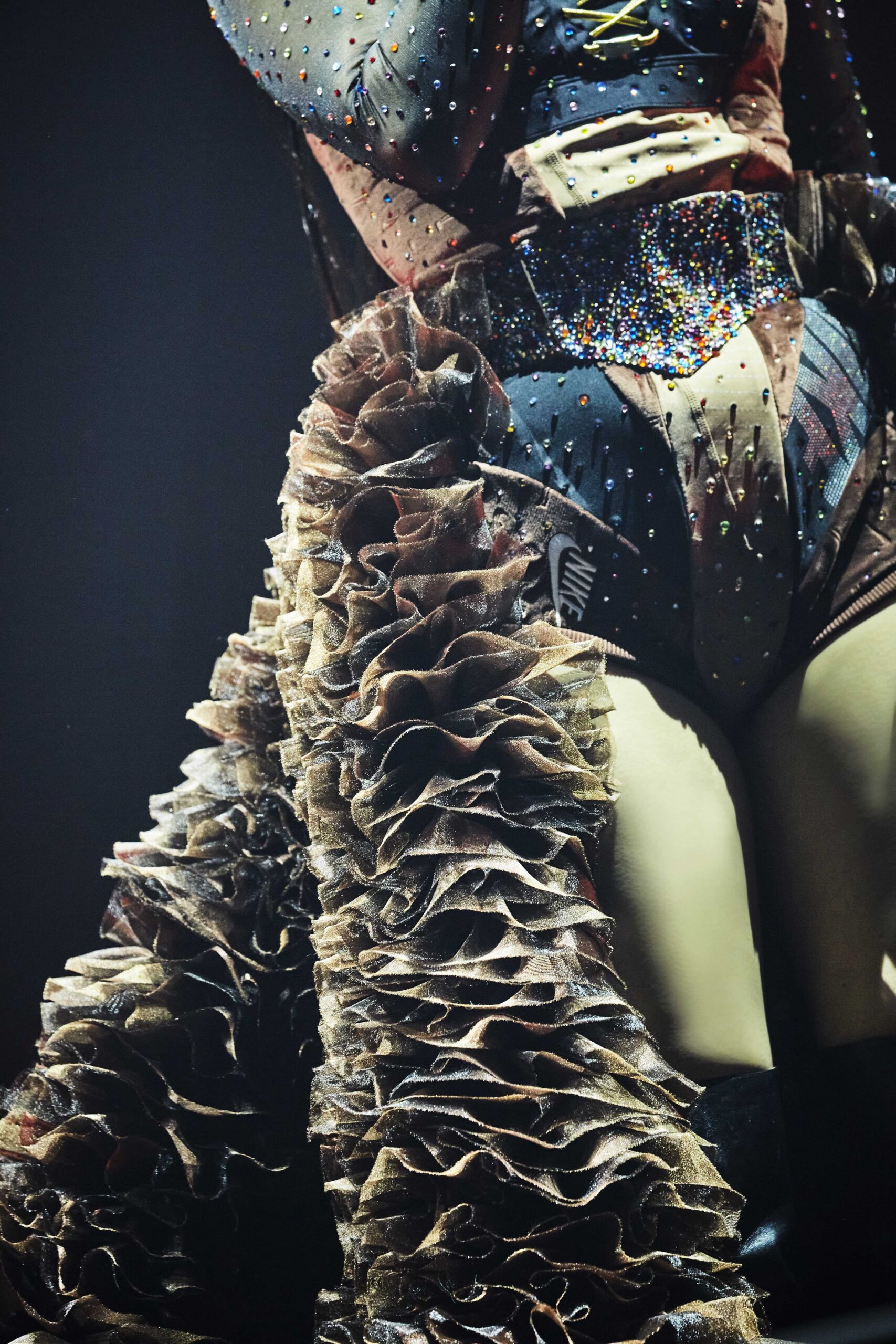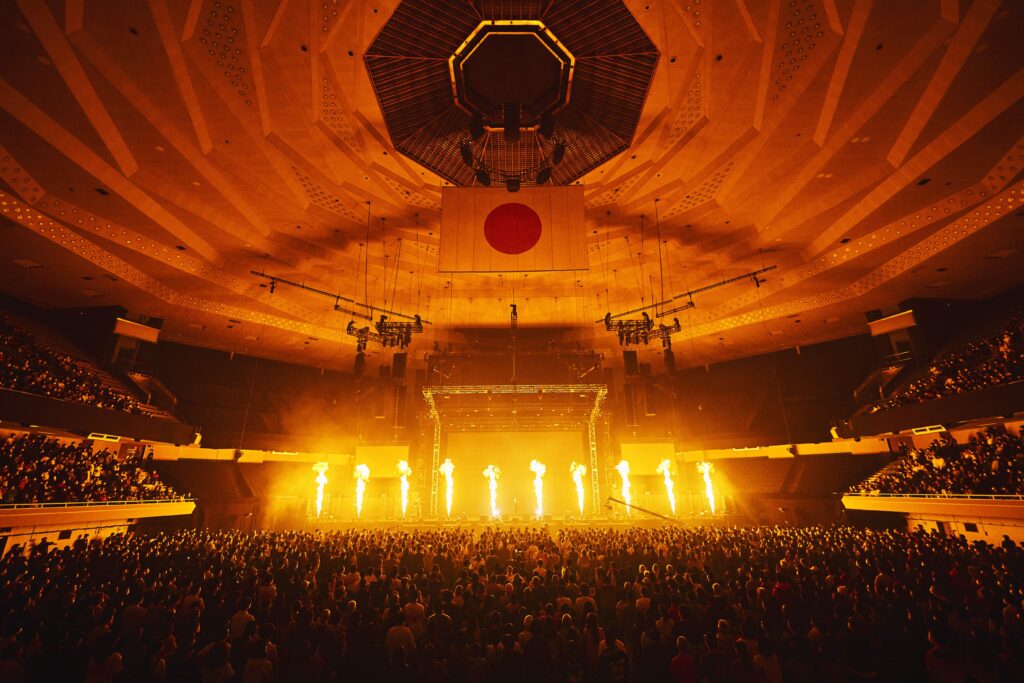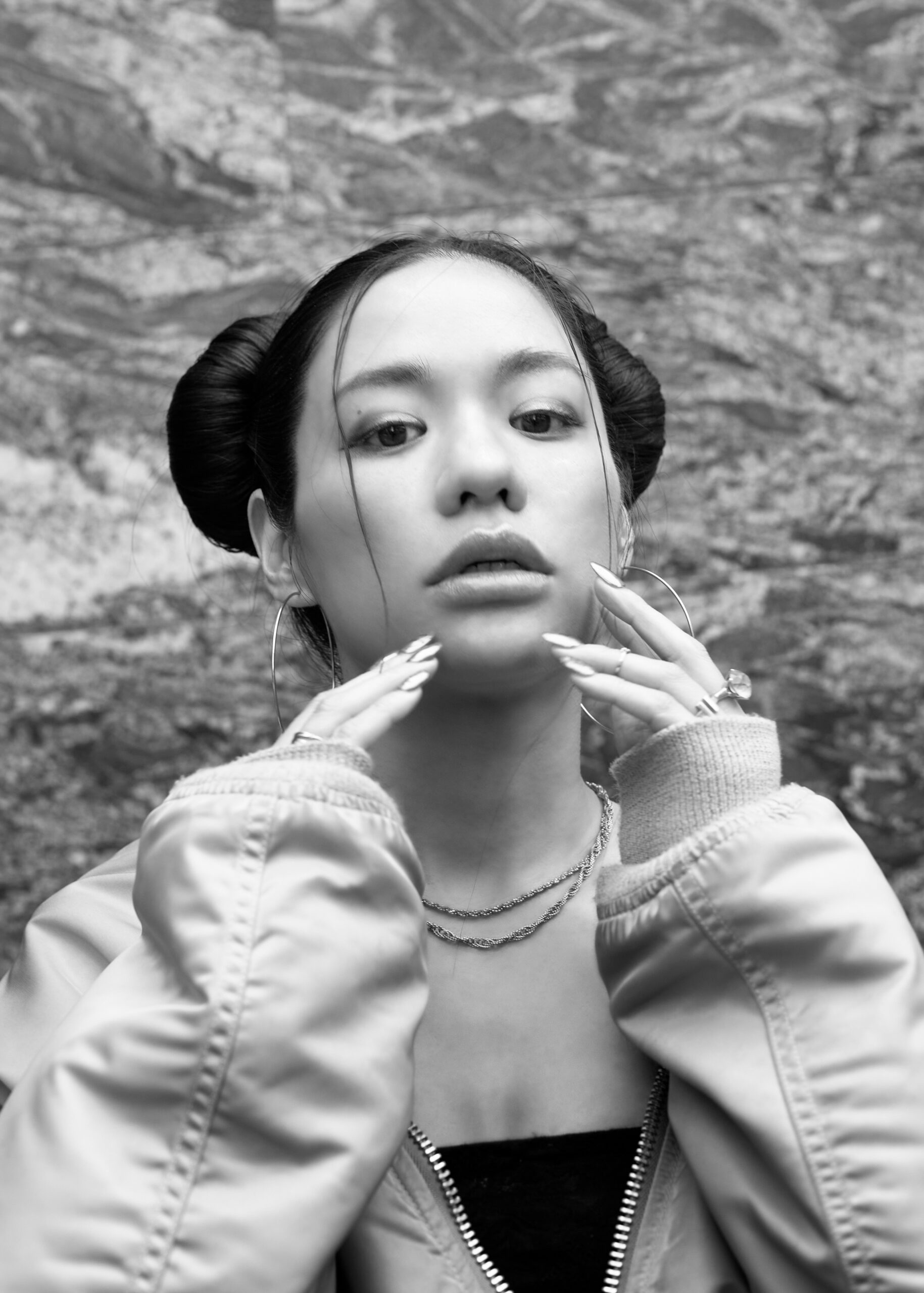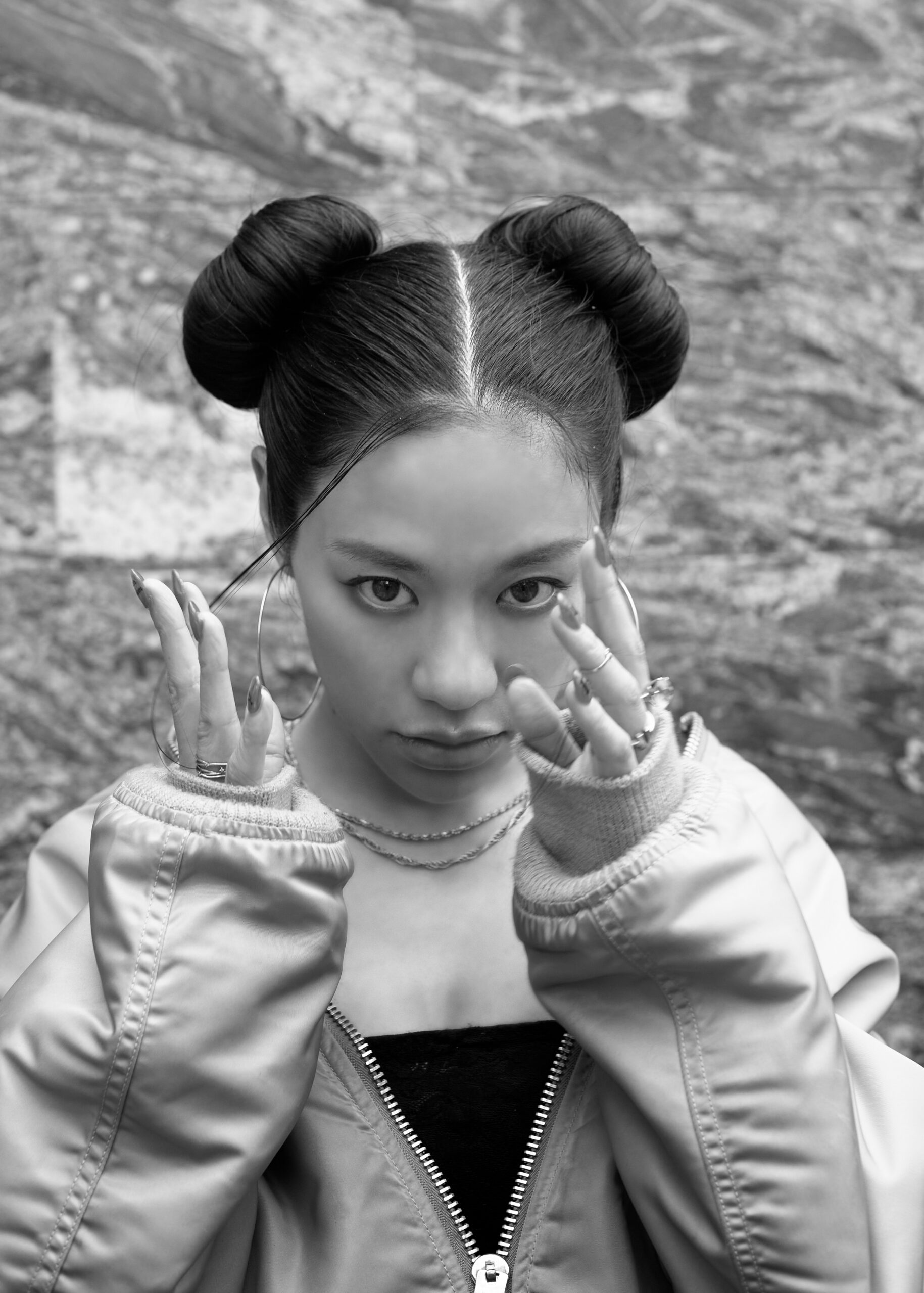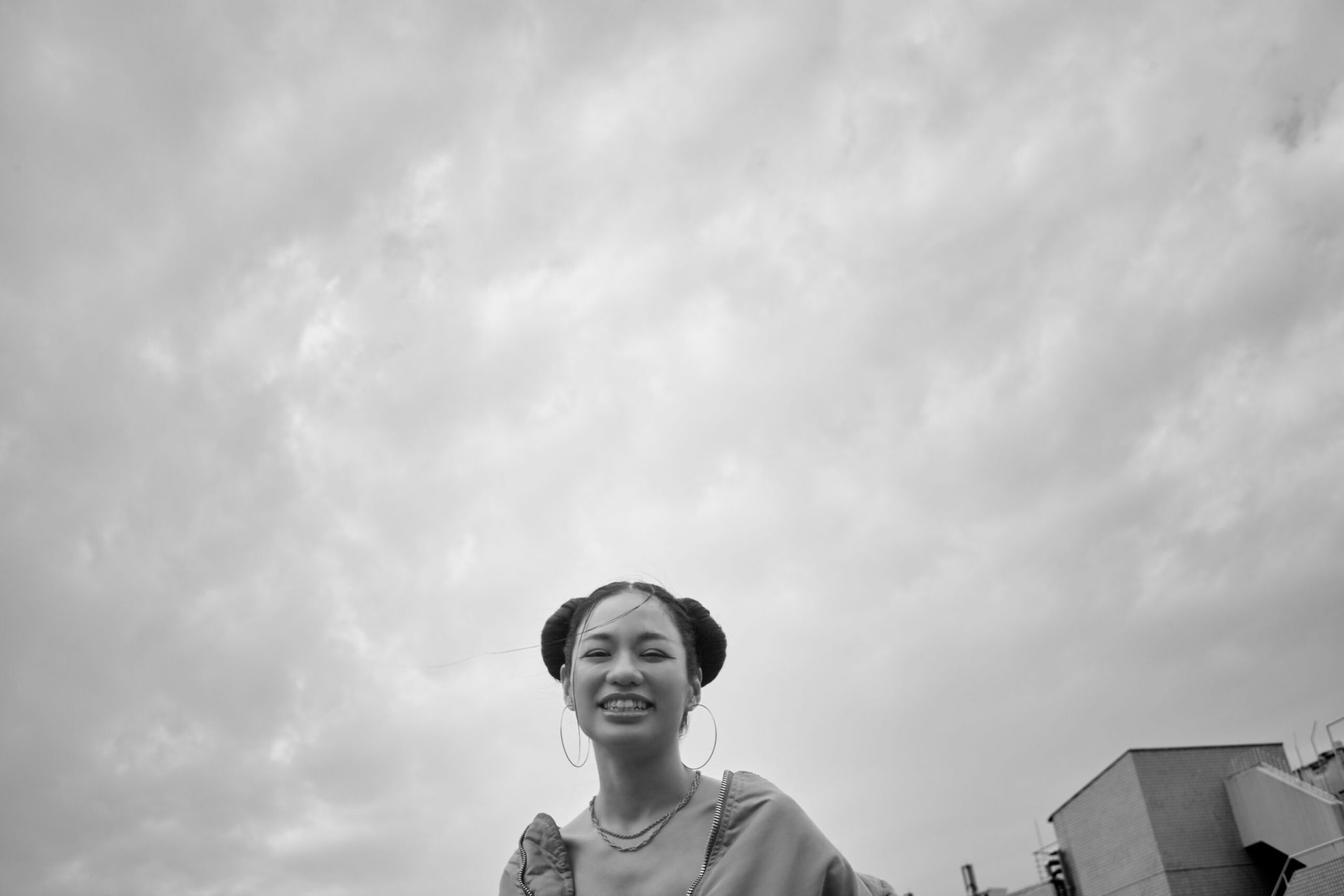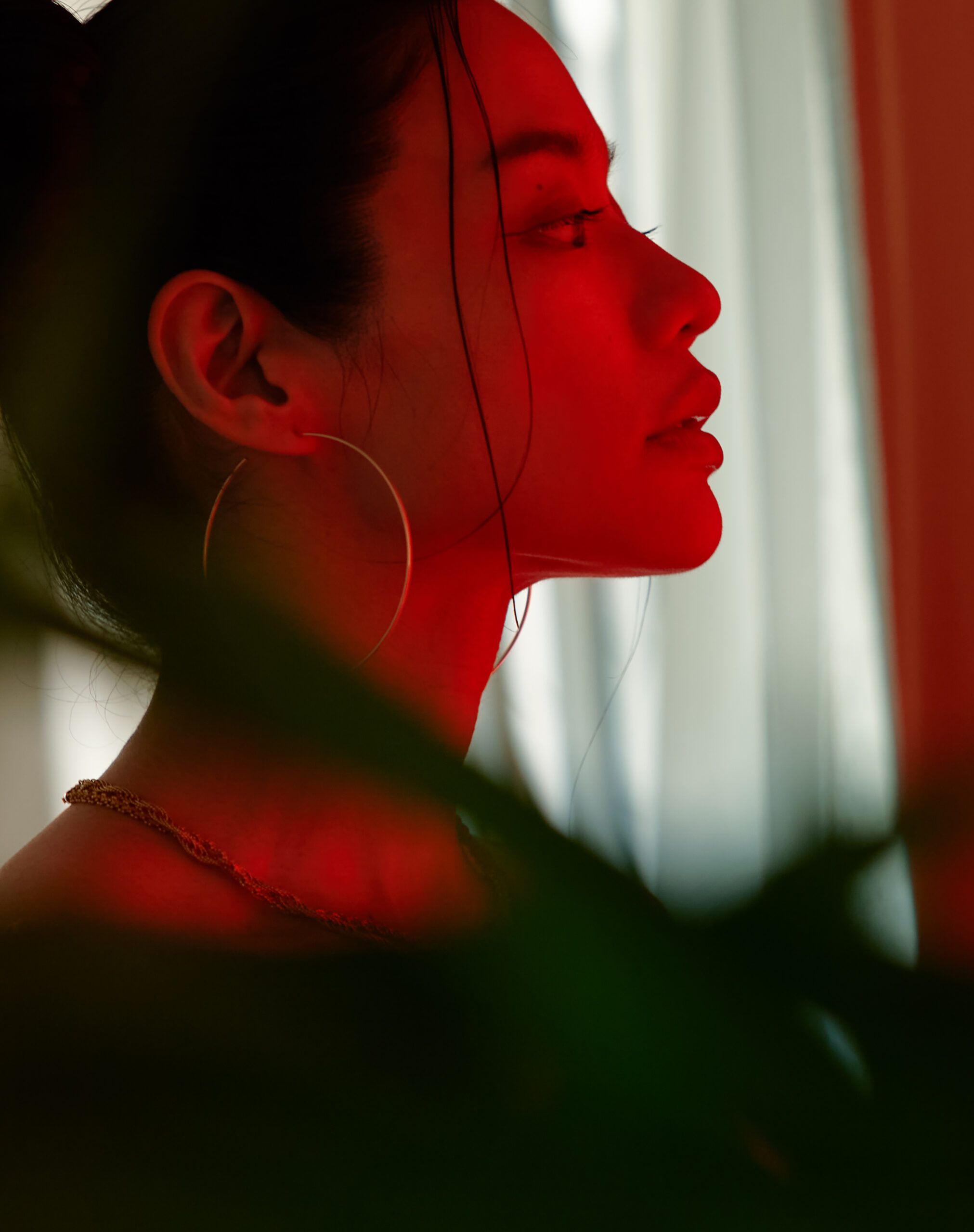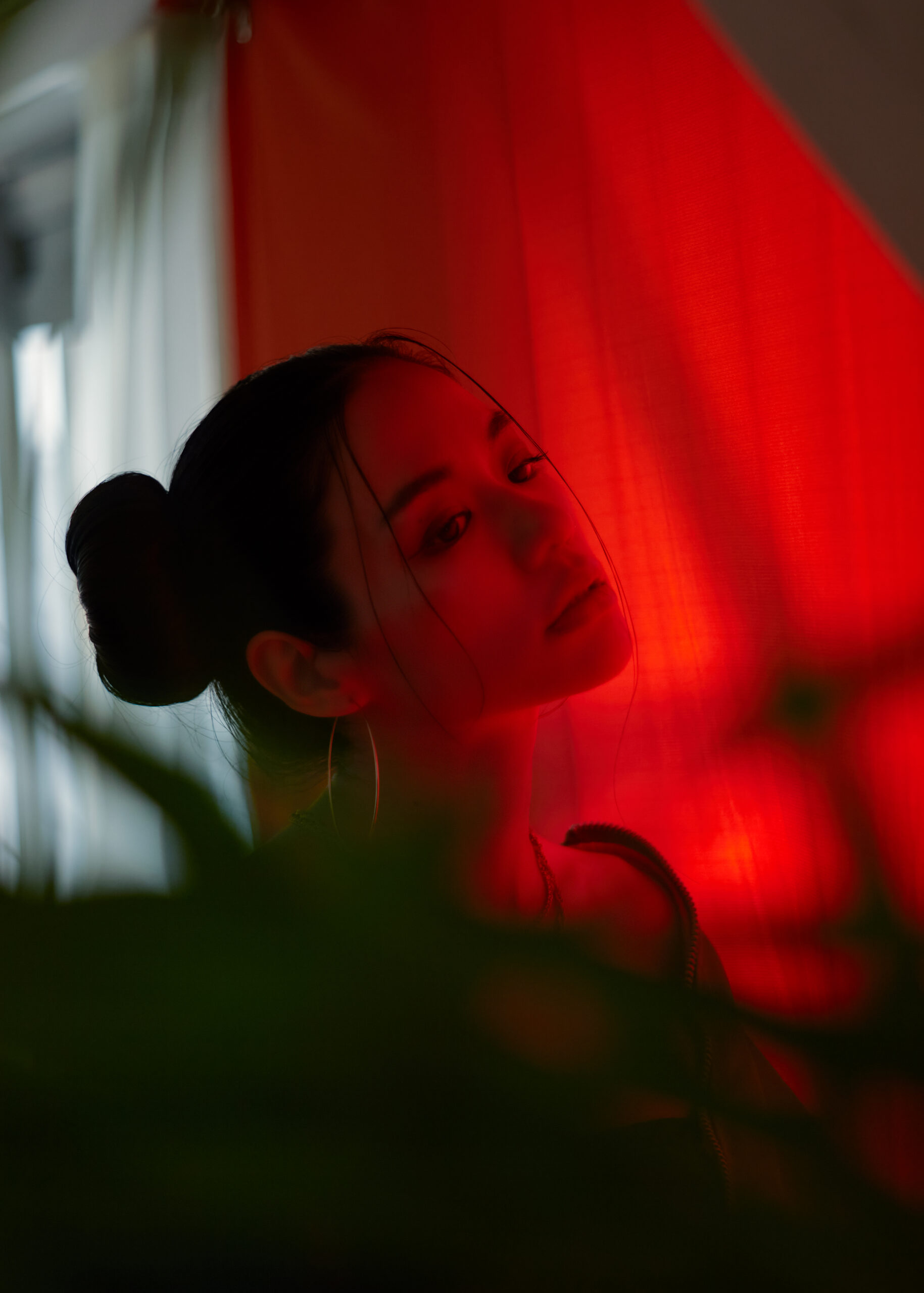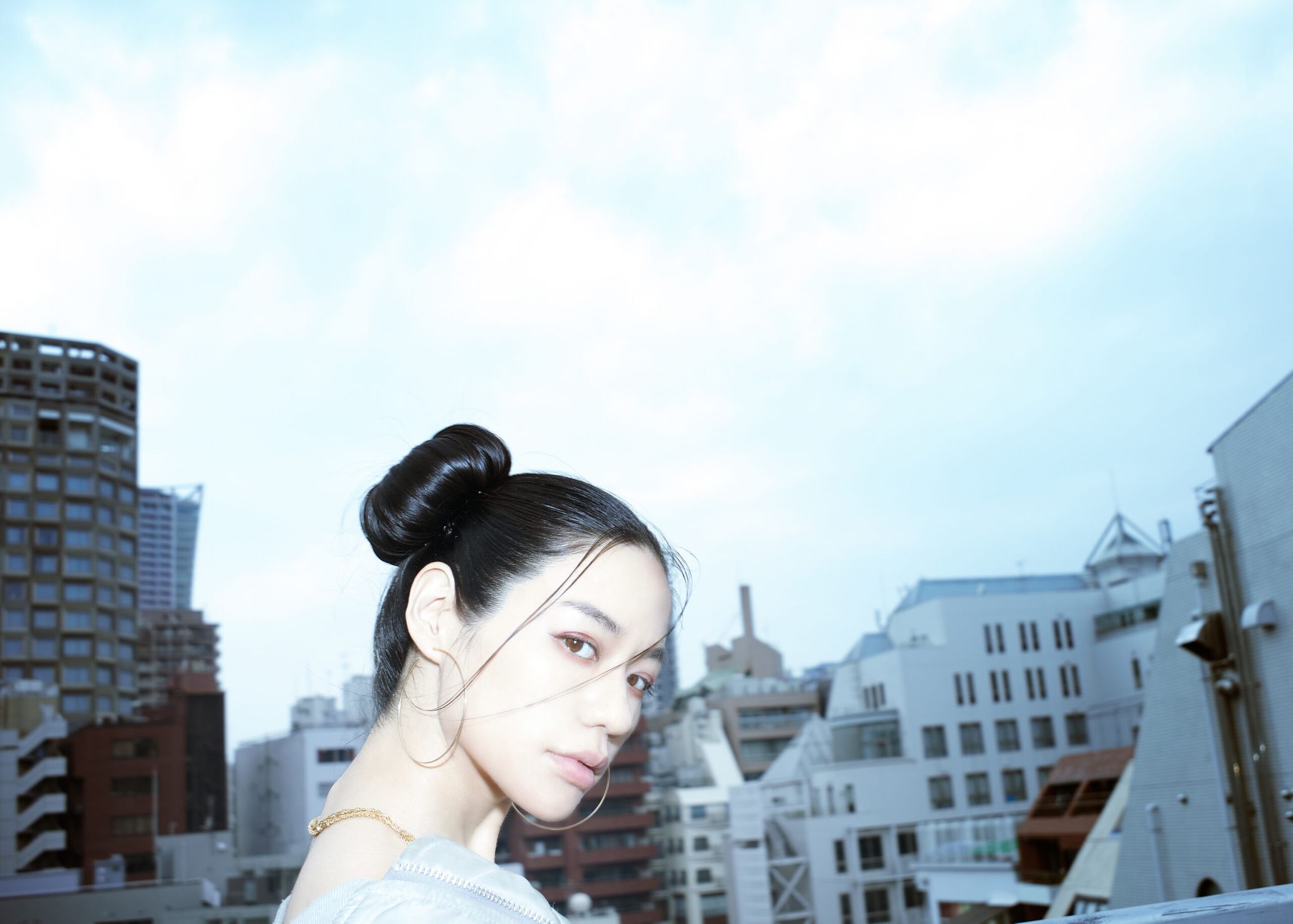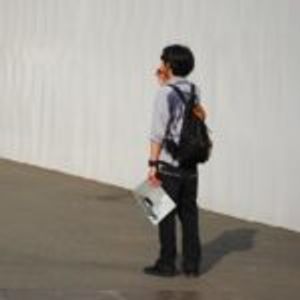As a rapper with exceptional finesse and style, Awich has gained a massive following, including people from her generation and women. Outside of music, she also has a strong presence in the fashion industry. As such, it’s evident that Awich is a leading woman icon of today. She successfully had her first solo show with diverse guests at Nippon Budokan on March 14th—apropos of her cumulative body of work. What are Awich’s thoughts now that the show’s over? What are her goals, and what attitude does she have to take them on? We explore what the future holds in her own words.
Approaching the Nippon Budokan stage with a refreshed state of mind
――You made a tremendous accomplishment by performing at Nippon Budokan, something many artists dream of doing. How do you feel now that it’s over?
Awich: I’m so glad I did it. It was a massive challenge for me, and I felt slightly anxious right before the show. I had last-minute preparations and felt like there was a missing piece the whole time. I had so much left to do. But oddly enough, my nerves went away like, poof, right before the show started.
――You snapped out of it?
Awich: Yeah. I had five studio rehearsals for the performance. When we were getting ready for the show, I discovered what my concerns were through trial and error and polished that repeatedly. I think that was part of it. You can’t make something perfect even if you practice it frequently, and you can’t get rid of anxious feelings. Even so, I was like, “It’s alright, nankurunaisa (everything will be alright)” once the show was about to start (laughs). Maybe that was my Okinawan mindset. Before I got up on the stage, I felt oddly refreshed. I would usually want to have some time for myself before the show, but that didn’t happen at all this time.
――You must’ve been like, “It’ll turn out okay!”
Awich: Besides, I was around many friends and family. We were noisy and having fun backstage right before the show started (laughs). I approached showtime in that environment, so I was like, “Here I go, then!”
――The vibes were good not just among the audience but also in the green room and backstage.
Awich: Exactly! Such good vibes. I want to clearly remember this experience as one of the successful ones, in the sense that I now understand what allows me to improve. I also realized I should practice frequently and course-correct along the way. Practice makes perfect. That’s the type of person I am.
――I was surprised by your outfits. You wore a reconstructed Nike garment by Tomo Koizumi. The color changed according to the scene, and it was beautiful.
Photography Courtesy of Nike
Awich: I wanted to perform wearing the collaborative Nike and Tomo Koizumi dress, so I’m glad that happened. But choosing outfits while keeping in mind the flow of the live set was so hard.
I always need to have a bodycon element somewhere. I wanted to differentiate the silhouette, size, and color balance according to the scene, so I gave the stylist and designer a hard time by telling them I wanted some changes last minute (laughs). But in the end, I think we found a good balance, so I’m happy with it.
Sharing the importance of one’s roots
――A lot of your Okinawan friends joined you onstage.
Awich: My Okinawan friends are like my siblings. The bond between rappers goes beyond music. I don’t think it’d work unless my relationship with my fellow Okinawans went beyond music. Once you keep your eyes off them, they disperse and go somewhere else, so it was probably rare to see everyone in one place (laughs). I was like, “Well done, everyone. Good job!”.
――What does the land of Okinawa mean to you?
Awich: Okinawa is always in my heart, no matter what. I often discover the true significance of what Okinawa has taught me later on. For instance, I used to think the meaning of nankurunaisa was “Whatever,” but after reading books and studying, I realized it might have a deeper meaning, like “You’ll be alright no matter which side you fall on.”
I love learning about the history of humankind, and what stunned me was the Okinawan saying, Ichariba Choode. It means whoever you meet once is your sibling. If our origins started from one seed, then all of humanity are siblings; it makes me wonder how a saying that ties in with this idea exists in Okinawa. It’s magical to connect with my Okinawan roots as I learn about the world and universe, and I want people everywhere to know about this way of thinking.
By caring for the island, I’m also showing others my stance on caring about my roots. I want to make others look back on what sayings and ways of thinking exist in their hometown. That’s what it means for me to cherish Okinawa.
――At the end of your Nippon Budokan show, you mentioned that you have your eyes are on the next stage. I assume you meant you’re striving to become more successful with a bigger audience.
Awich: Of course.
――In terms of increasing the scope [of your career], what sort of person do you think you’ll become?
Awich: Scope? I want to be a human being with a presence as strong as Yoko Ono. She’s the most famous Japanese woman, and she might even be the most recognized woman worldwide. There’s no Japanese rapper like that. In terms of women rappers, there are icons in the world like Nicki Minaj and Cardi B. It’s also my goal to become like them. I still have a long way to go and need to keep at it without stopping.
The most famous Japanese woman, a preacher of love and eros
Awich’s new music video, released in April. Awich “Link Up feat. KEIJU, ¥ellow Bucks”
――What sort of plans do you have to reach those goals?
Awich: I line up icons, such as the ones I mentioned just now, and take the parts I like about them. I have an image of how I want to be in the future, and I see it as my destination. I then reverse engineer and strategize how I could take action to reach that point. I know there are a lot of challenges I need to take on and obstacles I have to overcome. Unless I have a solid vision, I’d become intimidated when the time to face a challenge comes, like “Huh, can I do this?” If I prepare for what I should do, I could think, “If I can overcome this, I can get closer to my goal!” It gives me more courage. So, it’s vital to constantly visualize how I could run into a challenge out of the blue. If I don’t, I might not recognize an opportunity for what it is.
――I see. By setting clear goals, you can tell what you should be doing.
Awich: Yes. Ultimately, I want to become the most famous Japanese woman on the planet. And become a preacher of love and eros. That’s what I’m thinking of, and those things go beyond the category of being a rapper. Maybe I could become those things once I’m an 80 or 90-year-old grandma. I have to do what I have to do as a rapper.
――It sounds like what you’re talking about transcends the goal of becoming an iconic woman rapper.
Awich: That (aiming to become an iconic woman rapper) is a given. Naturally, it’s something I must accomplish. But that’s something I can only say today—I haven’t been able to say it until now. That could be the change in my state of mind after performing at Nippon Budokan. The 14-year-old me, the 24-year-old me who lost her husband, and the depressed 26-year-old me wouldn’t have thought it was possible. In hindsight, I can tell I’ve been ascending big steps. I’ve come this far, so I feel like I’m brave enough to do what I’m trying to do.
The magic of changing the world by being proactive
――This is a simple statement, but some people are afraid of becoming famous.
Awich: I understand. That used to be me too.
――What is it that still makes you want to become the most famous Japanese woman in the world?
Awich: I asked myself, “Why don’t you want to become famous?” The reasons came from a negative place. I was scared of failing despite boasting. I didn’t want to embarrass myself and stick out too much. But I realized I wanted to become famous deep down if I could.
――Right, you wanted to become famous if possible.
Awich: I realized I wanted to become famous, but didn’t want to because I was scared. When I had a dialogue with myself like, “If you think you can have another chance even if you fail, then that means you want to do it, right?” I replied, “Yes! I do!” Of course, some things would make me anxious, and I would face hardships, but when I thought like, “Isn’t life the best because you face adversity?” I believed I could direct my failures in a positive direction. I decided it’d be better to announce my goals while showing up through my actions.
――People could feel empowered by your attitude of showing up. There must be a lot of fans and listeners whose views on life changed because of you.
Awich: That’s what makes it all worth it. If I want to change the world and make everyone happier, I need to take action, first and foremost. If I could act, then others around me could change, and once that happens, I believe the world can change too. I aim to become the vision of what I want to be and act accordingly. I think that’s important. The magic of changing the world means taking action.
――Do you plan on expanding your career abroad?
Awich: Yes. Now that I’ve performed at Nippon Budokan, I want to make the world my stage. I think I’ll fail a couple of times at first, but I want to get to work soon with that in mind.
――What kind of thoughts did you previously have regarding making the world your stage?
Awich: When I first started, my focus was on America rather than Japan. At the time, Tokyo felt so distant, and I didn’t think I would be accepted. I always aimed for America. Being taken in by the Japanese scene was a happy accident because I was ready for [America].
But as I began working, I realized I had to become recognized in Japan before going out into the world. That was around the time I released “Remember” and “WHORU?” I thought there was no way people in America or other countries would accept me if I wasn’t well-known in Japan.
Awich “Remember feat. YOUNG JUJU”
Awich “WHORU? feat. ANARCHY”
――The time for you to go out into the world, which you previously thought about doing, has arrived now.
Awich: Maybe. It took time, but I now have more things I want to say. The weight of my words has become heavier. I want to move forward by being unafraid and aware of my strength.
Awich
Rapper/singer. Awich was born in Naha, Okinawa prefecture. She belongs to hip hop crew, YENTOWN. In March, she released the album Queendom and had a successful, eponymous solo show at Nippon Budokan with many guest rappers.
https://awich.jp
Instagram:@awich098
Twitter:@awich098
Photography Hidetoshi Narita
Text Ryo Tajima
Translation Lena Grace Suda

